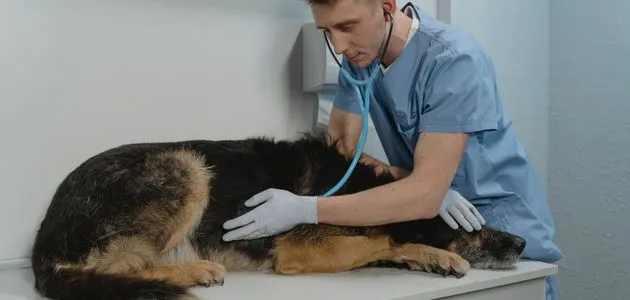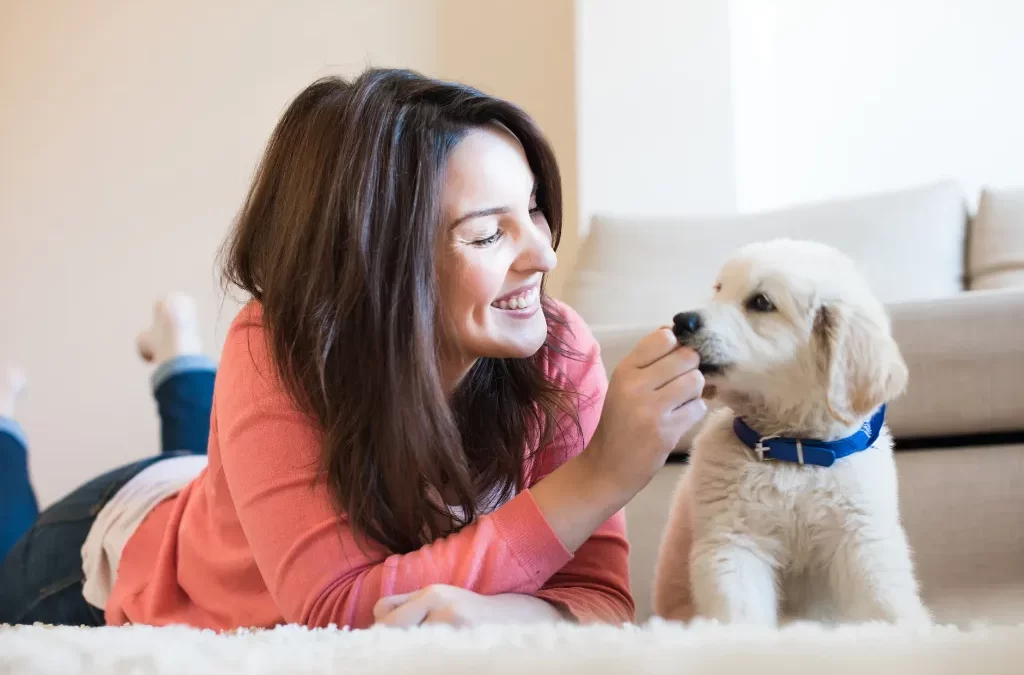1. Choosing the Right Dog Breed
Before welcoming a canine companion, it’s vital to choose the breed that aligns with your lifestyle. Each breed comes with its own set of requirements, temperaments, and care routines.
Are you an active individual? Perhaps a Labrador or Golden Retriever would be suitable. If you’re looking for a more laid-back dog for an apartment setting, breeds like the French Bulldog might be more fitting. Research thoroughly to ensure a pleasant living situation for both of you.
2. Puppy-Proofing Your Home

Think of puppies as little explorers. Their curiosity knows no bounds, and it’s up to you to ensure their environment is safe. Start by securing trash bins, as dogs can often rummage through them, risking ingestion of harmful objects or substances.
Additionally, it’s a good idea to safeguard electrical cords and move household plants out of reach. Some plants can be toxic if ingested. A puppy-proofed home minimizes risks and ensures your new pet’s safety.
3. Nutrition is Key

Your dog’s diet plays a pivotal role in its overall health and vitality. Not all dog foods are created equal, so it’s worth spending time researching and investing in a premium-quality dog food that meets your dog’s specific nutritional needs.
Also, always ensure they have access to fresh water. While occasional treats are okay, be sure to offer them in moderation and steer clear of foods harmful to dogs, like chocolates, grapes, and onions.
4. Establishing a Routine
Consistency is a cornerstone of good dog care. Just as humans find comfort in routines, dogs too benefit from a predictable schedule. Regular feeding times, walks, play sessions, and bedtime can help your pet feel more secure and reduce anxiety.
It’s especially crucial during the initial days when they’re adjusting to their new home. With time, they’ll start anticipating these activities, making your bond stronger and their life happier.
5. Socializing Your Dog
Socializing is not just about playdates; it’s about exposing your dog to various environments, people, and other animals. The earlier you start, the better adjusted your dog will be.
Regular walks in the park, visits to friends, or even short trips to pet-friendly cafes can be beneficial. Positive early experiences can reduce the chances of fear or aggression in adulthood, making outings enjoyable for both you and your pet.
6. Basic Training is Essential
Training isn’t just about obedience; it’s about communication. Simple commands like “sit,” “stay,” and “come” can make daily activities smooth and safe. Remember, positive reinforcement techniques, such as treats and praises, are more effective than punitive measures.
Over time, your dog will start understanding you better, leading to a more harmonious relationship.
7. Regular Vet Check-ups

A healthy dog is a happy dog. Regular vet visits are not just for vaccinations but for comprehensive check-ups to spot and prevent potential health issues.
It’s also an opportunity to discuss diet, behavioral concerns, and get recommendations tailored to your dog’s needs. Prevention is always better than cure, so keep up with these appointments diligently.
8. Grooming Needs
Dogs, just like humans, require regular grooming to look and feel their best. Depending on the breed, this might include regular haircuts, baths, nail trims, and ear cleanings.
Regular grooming not only ensures that your dog looks great but also provides an opportunity to check for signs of health issues like skin problems or ear infections. Plus, grooming sessions can be a bonding experience when done with gentleness and care.
9. Importance of Identification
A lost dog is an owner’s nightmare. Ensure that your pet always has an ID tag with updated contact information. But don’t stop there; microchipping is a more permanent form of identification that can significantly increase the odds of a happy reunion should your dog ever go missing.
Regularly check the tag for wear and tear and ensure the microchip details are up-to-date.
10. Choosing the Right Toys

Toys are not just playthings; they’re tools for mental stimulation and physical exercise. Choosing the right toys is essential. Hard toys can be excellent for chewers, while puzzle toys can challenge their minds.
However, ensure toys are of the right size and durability to prevent choking hazards. Also, rotating toys keeps your dog interested and engaged, so they don’t get bored of the same old toys.
11. Exercise Daily
Physical activity is integral to a dog’s well-being. It’s not just about burning energy but also about mental stimulation. Regular walks allow them to explore their environment, while play sessions can be both fun and educational.
The amount of exercise required varies with breed and age, so adjust accordingly. Remember, an active dog is less likely to engage in destructive behaviors out of boredom.
12. Be Prepared for Accidents

Every dog, especially puppies, will have accidents. It’s essential to approach these situations with patience and understanding. Instead of punishment, focus on positive reinforcement when they do their business in the right place.
Keep cleaning supplies on hand and remember that accidents are a part of the learning curve. With time and consistent training, they will become less frequent.
13. Stay Informed and Educate Yourself
The world of dog care is vast and ever-evolving. As responsible dog owners, it’s up to us to stay updated with the latest research, tips, and best practices.
Whether it’s through books, seminars, workshops, or online resources, continuous learning ensures that you’re always providing the best for your furry friend.
14. Invest in Pet Insurance
For many first-time dog owners, the concept of pet insurance might seem foreign or unnecessary. However, just as with humans, unexpected medical situations can arise with dogs, ranging from minor injuries to severe health complications.
Investing in pet insurance provides a safety net for those unforeseen circumstances. It can significantly reduce the financial strain of medical bills, ensuring your dog gets the best care without the burden of exorbitant costs.
Moreover, having insurance can also offer peace of mind, knowing that you’re prepared for any situation. It’s always best to compare different plans and providers to find the right coverage for your dog’s needs and your budget.
15. Show Plenty of Love and Patience
At the end of the day, your dog craves your love, attention, and understanding. The bond between a dog and its owner is unique and beautiful. Spend quality time together, be it playing, training, or simply cuddling on the couch.
With patience and love, you’ll build an unbreakable bond that lasts a lifetime. After all, they’re not just pets; they’re family.
Bringing home a new dog can be a daunting task for first-time dog owners. But with proper care, training and attention, dog ownership can be an incredibly satisfying and rewarding experience. We hope that this comprehensive guide helps you become a responsible and confident first-time dog owner.
Remember, your dog will love and depend on you unconditionally, so give them the best care, attention, and love that they deserve.

